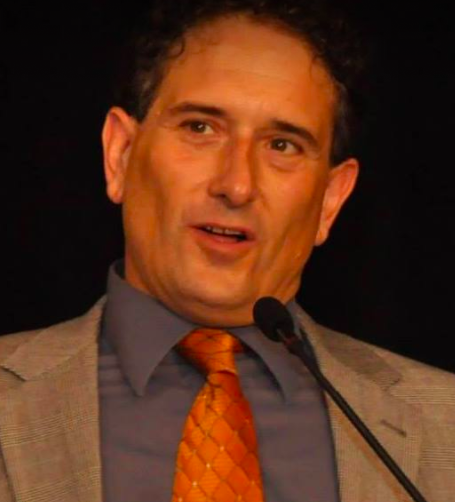The Trump administration might be a nonstop soap opera of insanity in Washington these days, but Michigan’s Republican attorney general race has become quite the spectacle itself.
The GOP battle to replace term-limited AG Bill Schuette is between two term-limited lawmakers, House Speaker Tom Leonard (R-DeWitt) and Sen. Tonya Schuitmaker (R-DeWitt). This week, their scrapping resulted in Schuitmaker declaring that Leonard “needs to grow a pair.”
You can’t ask for a more Trumpian response than that.
It’s befitting of a Republican contest that will be determined by Trump-loving activists at the party convention in August. Races for governor and U.S. Senate are decided in primaries, which are typically low-turnout affairs. But party nominees for AG, Secretary of State, Michigan Supreme Court and state education boards are typically chosen by only a few thousand people who love ideological litmus tests, particularly on the GOP side.
Schuitmaker’s crass barb is a bit disconcerting for those who have known her for years as a rather quiet member of a Republican caucus that features quotable firebrands like Sens. Patrick Colbeck (R-Canton) and Rick Jones (R-Grand Ledge).
If you’ve been paying any attention to the Republican race, you’d think that Michigan’s AG does nothing but round up illegal immigrants, fire guns and stop abortions. In reality, the job is just a tad tamer and less partisan, and most of the real work is in the important, but less sexy area of consumer protection.
Leonard has the reputation as the more conservative candidate, pushing a (failed) income tax cut right out of the gate last year and recently popping a bill making English Michigan’s official language. That’s the red meat Republican convention-goers crave, even if those votes aren’t terribly helpful to his House colleagues in competitive seats this year.
Leonard also won a star speaking slot at the Macomb County GOP dinner last fall featuring former White House senior adviser and Breitbart head Steve Bannon right before his fall from grace in Trumpland. Bannon, of course, wasn’t exiled because of his publication’s ties to Nazis or doing strategy for Roy Moore, the failed Alabama U.S. Senate candidate accused of sexually abusing several teenage girls, including one who was 14. It was Bannon’s trash-talking of President Trump and his family in the salacious tell-all Fire and Fury that sealed his fate.
Meanwhile, Schuitmaker has been trying to go toe-to-toe with Leonard on right-wing dogma with social media posts slamming sanctuary cities and echoing Trump’s call for the U.S. Justice Department to investigate Hillary Clinton. No doubt, Schuitmaker is trying to make up for the sin of criticizing the “mudslinging” (lol) in the 2016 presidential race after Trump’s “Access Hollywood” tape revealed him bragging about sexually assaulting women.
Once upon a time, conservatives would blanch at a president trying to compel the independent U.S. attorney general and his staff to go after his former election opponent, as that’s the stuff of banana republics. But now a number of Republicans running on law-and-order platforms are campaigning on utter lawlessness.
We’re truly at a unique and disturbing point in history.
Schuitmaker has some practice running right. After representing moderate GOP districts in the Kalamazoo area for most of her career, she had to run in 2014 in a new, highly conservative Senate district reaching into blood-red Allegan County.
In the AG race, she’s gone after Leonard for contributing to his old boss, Genesee County Prosecutor David Leyton, who lost the ‘10 AG election to Schuette. On Facebook, Schuitmaker rips Leyton as a “liberal Democrat endorsed by Planned Parenthood.” It would also be accurate to note Leyton recently partnered with Schuette on the opioid crisis, but of course, that’s not how you win a GOP convention fight.
Meanwhile, Leonard has attacked Schuitmaker for her campaign allegedly filing a Freedom of Information Act (FOIA) request on his wife, Jenell Leonard, who recently stepped down from a high-profile post as head of Michigan’s film office.
In case this isn’t clear, it was a government job paid by tax dollars. Last time I checked, the public was entitled, even under Michigan’s terrible FOIA laws, to find out what their government and the people who work there are up to (unless they’re in the Legislature or the governor’s office).
However, Speaker Leonard decried the FOIA request as “an attack on my family” and accused Schuitmaker of “going to the gutter.” That’s when Schuitmaker responded to MIRS that he “should grow a pair.”
If these two keep it up, they just might make the “mudslinging” of the 2016 election look tame.
Susan J. Demas’ work can be found at SusanJDemas.com. Follow her on Twitter here.












